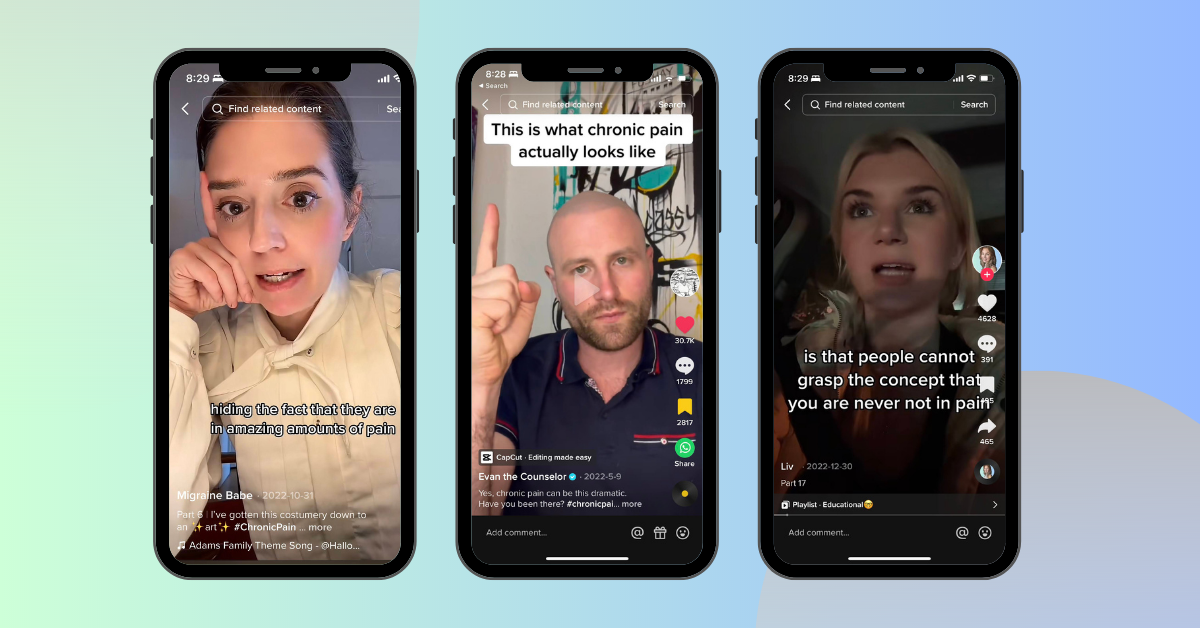What Digital Health Means to Me as a Chronic Pain Patient
How I learned to manage my condition on my own with the help of online tools and resources.
At the age of seventeen, I went to an unsupervised artistic gymnastic facility to impress a boy I liked. However, things took a turn for the worse when I attempted a front flip; I lost momentum halfway through and I fell right onto my head. Immediately, I knew something was seriously wrong.
Later, the official diagnosis became chronic whiplash syndrome with disc degeneration and a pinched nerve in my C1 vertebrae. This one accident would shape the next decade of my life.
My journey with the Canadian health care system was long and arduous, but it taught me a lot about the importance of patient care and the shift toward digitalization.
Digital health brings a lot to the table. It can help patients like me manage our pain more effectively and provide us with the support we need to live fulfilling lives. By harnessing the power of knowledge and technology, we take control of our health like never before.
Empowering Self-Management of Patients’ Health
As our health literacy has increased, the balance of authority has shifted from physicians to patients. We now have unprecedented direct access to clinical information via search engines and social media, which has empowered us to become our own health advocates.
With a wealth of knowledge at our fingertips, we can effortlessly access the latest credible advice and medical education from sources like Health Canada, WebMD, and the Mayo Clinic.
And by connecting with fellow patients on popular forums like Reddit and Tik Tok, we can share our experiences, learn from one another, and build a supportive community.
Source: Tiktok. Millions of chronic pain sufferers find solace, support, and education online about their conditions.
Moreover, digital technologies have enabled us to monitor our symptoms, manage our physical activity, and track our care plans more efficiently than ever before.
Reduce Health Care’s Environmental Impact
It's widely recognized that the impact of climate change on our health and health care system is worsening, and digital health emerges as a vital tool to help address the challenges ahead.
In line with the Canadian Net-Zero Emissions Accountability Act, which mandates extensive decarbonization across all sectors by 2050, Canada has recently committed to the World Health Organization's (WHO) initiative to develop low-carbon, sustainable, and resilient health systems.
The advantages of virtual care are evident: they result in saved carbon emissions from avoided travel, as well as financial savings such as reduced travel costs. By replacing in-person visits with virtual consultations where appropriate, we can significantly reduce greenhouse gas emissions.
It’s crucial to recognize that every action within the health care sector has a footprint and an environmental impact. Every Canadian stands to benefit from a more integrated system that prioritizes prevention and minimizes waste.
Improved Access to Health Services
Those living with chronic pain understand the limited reserves of energy they possess. Simple tasks like planning an outing, walking to the pharmacy, or waiting in a doctor's office can be excruciating and depleting. Given the choice, most would prefer to avoid these activities altogether for the sake of convenience.
This is where digital health steps in: offering the convenience of online communication with our physicians. Have a question for your doctor? Instead of visiting in-person, simply shoot them an email. Need to update a prescription? With e-prescriptions, we can have a phone conversation with our pharmacist and, in some cases, have our new medication delivered right to our doorstep.
When it comes to chronic pain specialists, they are few and far between. Online access to specialists located far away becomes imperative in reducing wait times and accessing medication or treatment earlier.
Timely access to care is crucial for patients, mitigating the risk of their condition worsening and alleviating the strain on an already overwhelmed health care system. Plus, helping those in pain swiftly is the most humane thing to do.
A More Compassionate and Sustainable Health Care Future
In conclusion, digital health empowers chronic pain patients like me, reduces environmental impact, and improves access to care. It enables self-management, connects patients, and ensures timely support.



